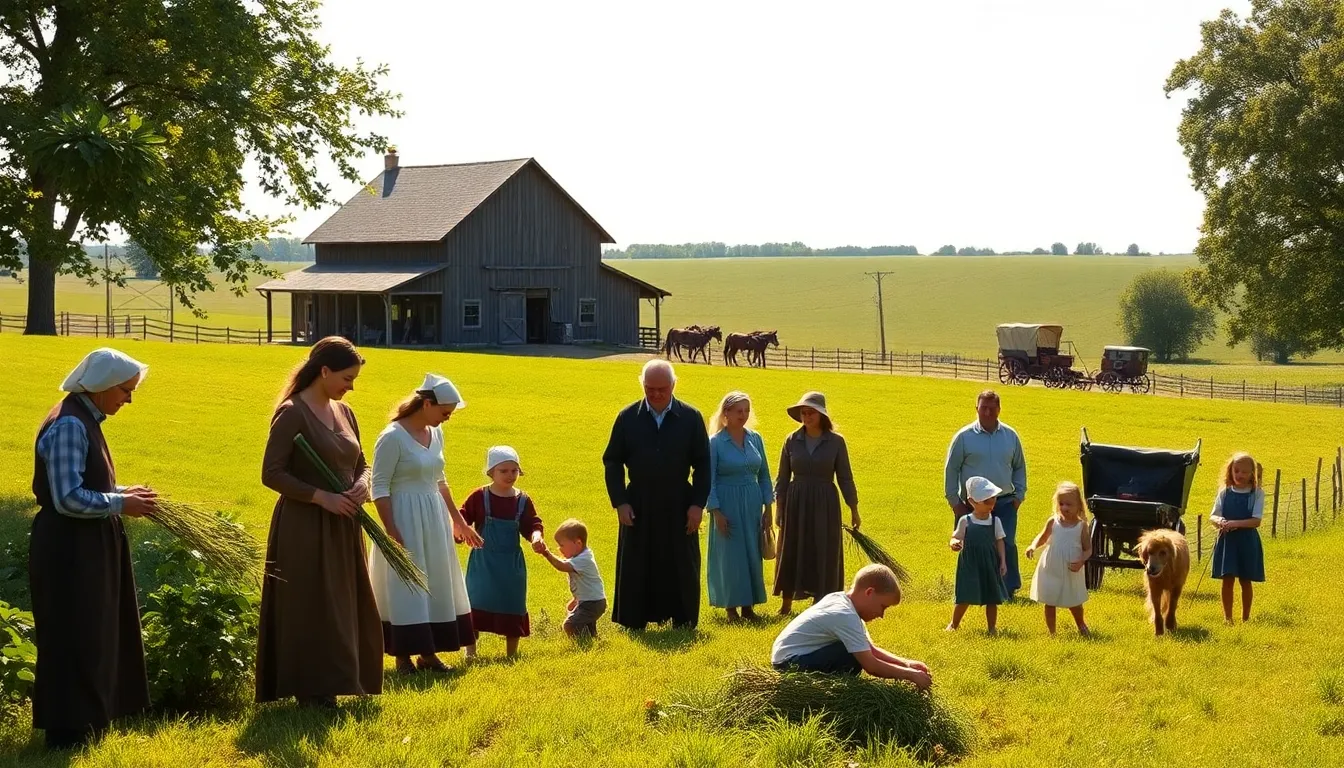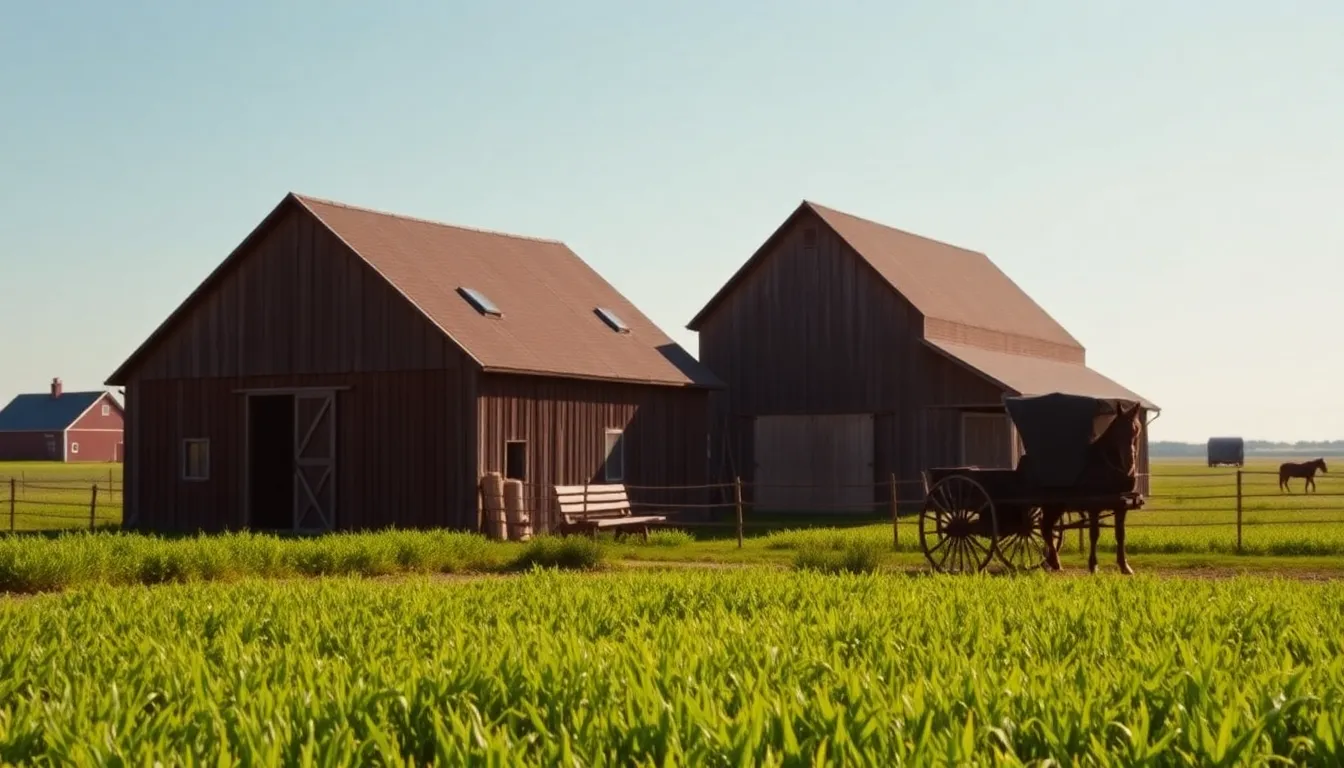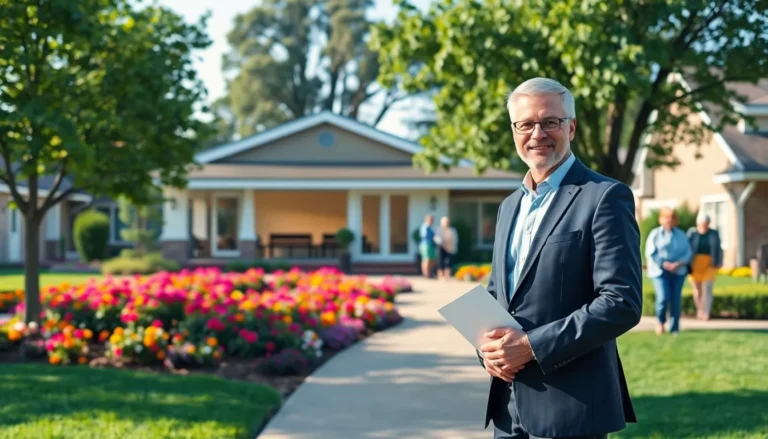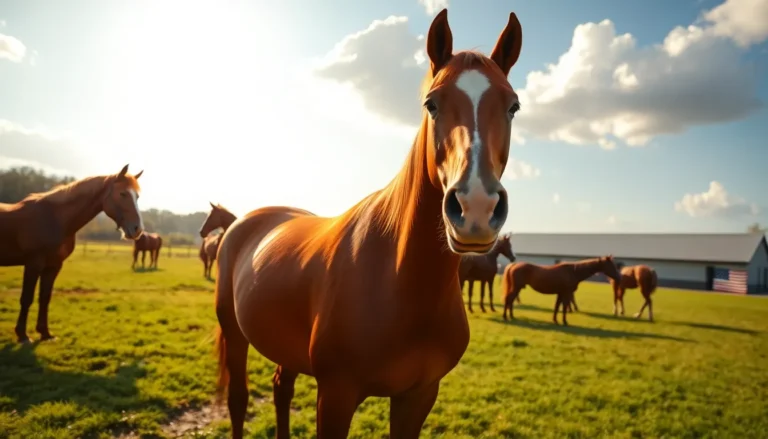When you think of the Amish, the first image that probably pops into your mind isn’t property taxes, after all, it’s hard to picture horse-drawn buggies rummaging through a taxation office. But believe it or not, these communities do have to deal with the good ol’ taxman, just like the rest of us. So, do Amish pay property taxes? The short answer isn’t as straightforward as one might assume. Buckle up as we jump into the surprising world of Amish property tax obligations.
Table of Contents
ToggleOverview of Amish Communities

The Amish are known for their simple living, plain dress, and reluctance to adopt modern technology. Primarily settling in rural areas of the United States, especially in states like Pennsylvania, Ohio, and Indiana, these communities prioritize farming and craftsmanship over the hustle of modern life. With a low population density and a strong emphasis on family and community, the Amish often live off the land, practicing agriculture or trades that require minimal technological intervention. Their beliefs significantly influence their lifestyle choices, shaping what they do and how they interact with the world around them.
Understanding Property Tax Obligations
When it comes to property taxes, every individual and community generally has to face them. Property taxes are usually levied on real estate by local governments, and these funds often support community services like schools, roads, and emergency services. The Amish, while living outside the mainstream, are not immune to these obligations. But, certain nuances apply when discussing property tax responsibilities among Amish communities.
Amish Exemptions from Property Taxes
Many states offer specific exemptions for properties associated with agricultural use. In many cases, Amish farms fall under these agricultural categories, allowing them to enjoy reduced property taxes. For instance, if a farm’s primary function is the cultivation of crops or livestock, it might qualify for more favorable tax rates. Yet, this doesn’t universally apply to every Amish person or property. Each situation is unique based on state regulations and individual property use.
State-Specific Regulations
The property tax obligations for the Amish can vary significantly based on the state in which they reside. States like Ohio may offer agricultural exemptions, while others might not have such provisions. For example, Pennsylvania has multiple classifications for properties, which could benefit the Amish depending on how their land is utilized.
It’s crucial to note that, in some states, exemptions can be challenged by local authorities. If an Amish community runs a business that strays from traditional farming practices, they might find themselves confronted with property taxes they assumed were exempt. So, it’s beneficial for Amish individuals to stay informed about state regulations surrounding property taxes.
Impact of Property Taxes on Amish Lifestyle
For the Amish, property taxes can have a noticeable impact on their way of life. Since many Amish families practice subsistence farming, high property taxes could threaten their ability to sustain themselves. The Amish community may view heavy taxation as a burden, sparking discussions on whether their traditional lifestyle allows for such expenses.
Beyond farming, many Amish communities undertake trade work, crafting furniture, quilts, and other handmade goods. These activities could create additional income that helps offset property tax burdens, allowing families to manage their finances without compromising their values.
Controversies and Legal Cases
As with any topic involving taxes, there are plenty of controversies surrounding the Amish and property taxes. Several legal cases have emerged over the years, wherein Amish individuals have contested their tax obligations based on their religious beliefs and lifestyle. Some argue that heavy taxes on their property are discriminatory, affecting their ability to lead a life devoted to simplicity and community.
In one notable case, certain Amish families in Ohio fought against zoning regulations concerning their agricultural properties, emphasizing their right to maintain their way of life without intervention. These are complex issues that require a thorough understanding of both state law and cultural practices, often leading to heated discussions within local governments.







